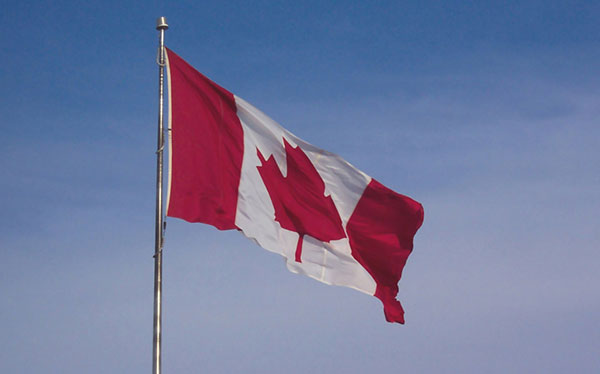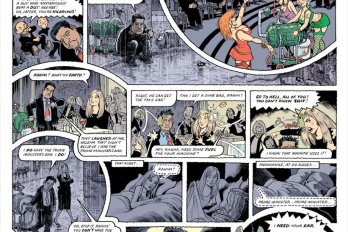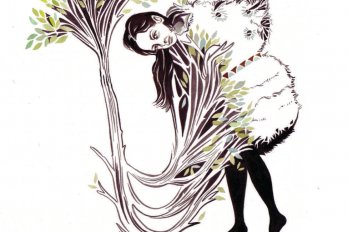When the Conservative government proposed changing a single line of our national anthem this past spring, the outrage was ferocious enough that the idea was shelved in less than forty-eight hours. The prime minister’s spokesman couldn’t back down fast enough: “We offered to hear from Canadians on this issue, and they have already spoken loud and clear. They overwhelmingly do not want to open the issue.” I can only surmise that Olympics-fuelled patriotism was blinding a large and vocal swath of the country to the fact that the national anthem doesn’t need cosmetic surgery; it needs a complete overhaul. Face it: “O Canada” is the worst song you sing or hear on a regular basis.
Harper was correct that the lyric “True patriot love in all thy sons command” is inexcusably sexist, but that’s the least of the song’s problems. The original lyrics, in French, contain the juicy nugget “Car ton bras sait porter l’épée, / Il sait porter la croix!” which translates loosely as “Because your arm can carry the sword, it knows how to carry the Cross!” The sword and the Cross? Is there a less Canadian sentiment? The English version, which only took its current form thirty years ago, blunts the violence but sharpens the religion: “God keep our land glorious and free!” What we have is a national anthem that can’t be sung full throatedly by Jews, Sikhs, Hindus, Muslims, or atheists. Granted, I live in downtown Toronto, but that’s practically everyone I know. I don’t think I’m being politically correct here, either. I’m being factually precise: our national anthem was written for a nation that no longer exists. There are reportedly a hundred thousand viewers for Hockey Night in Canada with Punjabi commentary; surely these people deserve a song they can sing without skipping lines.
National Hum
Spain’s fruitless search for inoffensive anthem lyrics
Spain’s national anthem is instrumental, but recent efforts to give the country something to sing about hit a flat note. In 2007, Spain’s Olympic committee organized a contest, in co-operation with the federal government, to generate lines for the 250-year-old military march. “It is not fair that our sportsmen can only sing along by going ‘chunda-chunda-chunda’ or ‘lo-lo-lo-lo’ to the anthem,” an Olympic official told The Economist. The contest received over 7,000 entries, but the winning lyrics—which began with the seemingly inclusive “Viva Espa˜a!”—were decried by the nation’s regionally diverse citizenry as too nationalistic and a throwback to Franco’s dictatorship. The proposed words were dropped, leaving national athletes tongue tied.
—Jennifer Marston
I’m aware that it’s a huge inconvenience to change a national anthem, especially when that nation is one as haunted by prevarication and suppressed conflict as Canada. But we have to make it a priority. I could forgive the lousy lyrics, and even the dumbed-down Mozart composed for them, if it weren’t for the last note. It’s a national disgrace, perfectly designed so only about a third of singers can actually reach it. In practice, whenever large crowds sing the song, “O Canada” ends in a wavering lack of conclusion. We can’t even agree on a note! Worse, the failure often provokes laughter. There may be something appropriate about an exercise in Canadian nationalism that ends with a recognition of its ludicrousness, but we’re singing this song over the bodies of soldiers coming back from Afghanistan. It shouldn’t be a complete joke.
The obvious choice for a replacement is “The Maple Leaf Forever,” unofficial anthem for English Canada up until the ’30s. Skip the opening stanza, which celebrates the conquest and subjugation of one of our founding nations by the other, and it might even be halfway decent:
At Queenston Heights, and Lundy’s Lane,
Our brave fathers, side by side,
For freedom, homes, and loved ones dear,
Firmly stood, and nobly died;
And those dear rights which they maintained,
We swear to yield them never!
Our watchword evermore shall be
“The Maple Leaf forever!”
Civil rights, loving homes, and beating the Americans: surely we can all agree on that. The chorus would need some revision, with its mention of the Queen and Heaven, but there’s definitely enough to work with. The melody has the requisite jauntiness, and the chorus is genuinely stirring.
But I have a better idea. There’s a song that everyone in Canada already knows, one that excites the profoundest feelings of pride in the national psyche. I’m speaking, of course, about the ex–theme song for Hockey Night in Canada. No less a personage than Wayne Gretzky is on record as saying, “The greatest song in Canada is the theme song to Hockey Night in Canada, and to this day it still sends a shiver up my spine.” CTV bought the tune in 2008 from the jingle writer who originally composed the piece in 1968. We simply have to nationalize it.
Imagine beginning every hockey game and school assembly with “Dunt-da-DUNT-da-dunt, dunt-da-DUNT-da-dunt, dunt-da-DUNT-da-dunt da-daaaaaa.”As for the lyrics, I would like to suggest a simple message that is Canadian to the core and fits the melody perfectly: “Let’s all get along.” By this simple solution, we would instantly have the greatest, shortest national anthem in the world—something we could all feel good about fighting for.
This appeared in the July/August 2010 issue.





